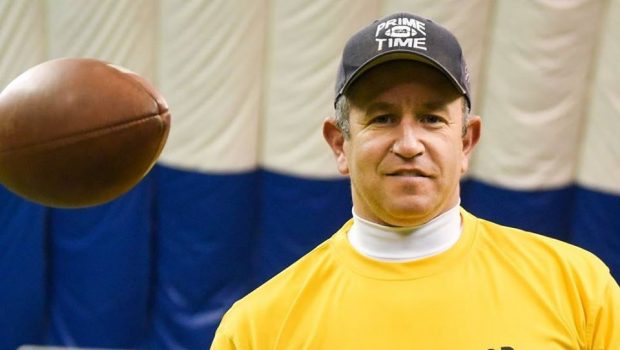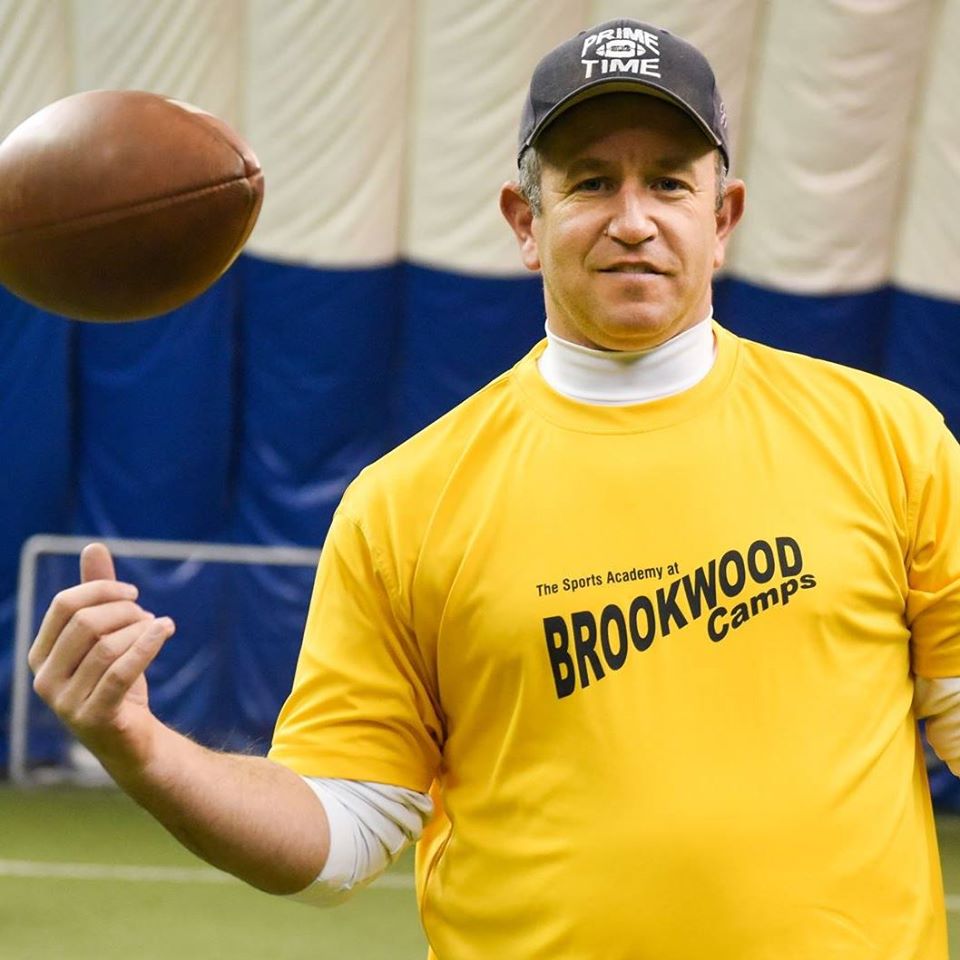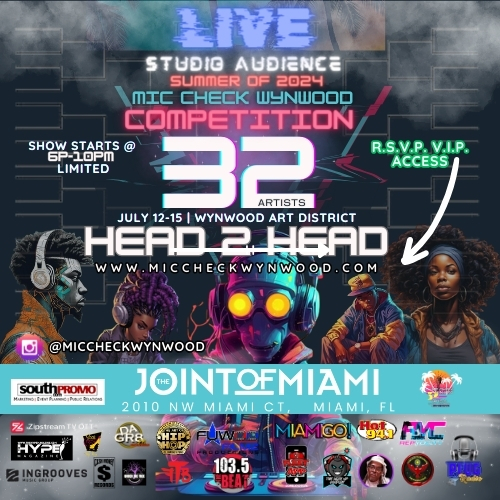From Back-Up to Out of the NFL to Replacing a Legend, Jay Fiedler’s Undeniable Journey Pt. 1
In 2002, Jay Fiedler was inducted into the National Jewish Museum Sports Hall of Fame!
Putting up amazing stats as a college quarterback doesn’t always guarantee you a roster spot in the NFL, especially when you accomplish those stats at an Ivy League school. In the case of Jay Fiedler, he posted remarkable numbers at Dartmouth. He was the number one passer in the nation while leading the country in pass efficiency as well. During his time at Dartmouth, he also captured two Ivy League Titles and was named Ivy Bowl MVP in 1994. Despite his stellar career for the Big Green, Fiedler went undrafted and would have to break several barriers to earn his NFL shot. After breaking down those barriers, he made it count, not only was he named the starter of the Miami Dolphins post Dan Marino era, in his 4-seasons as the starter, the Dolphins had three 10+ win seasons including two 11-5 season records, an AFC East title and two playoff appearances.
I recently spoke to the NFL veteran to discuss his summer camp, “The Sports Academy at Brookwood Camps, his journey to the NFL and much more!
How have you been?
Jay Fiedler: I’m good. I’m good. Since retirement I’ve joined the summer business of running summer camps, which my dad did for about 40-years. My brother and I run it now. So, unfortunately, we can’t run our sleep-away camp this summer, but we’re doing some clinics, one-day events and family retreats events up at the camp this summer to try and salvage something.
It sounds like Covid-19 has definitely had a detrimental affect on your business.
Jay Fiedler: Well, we’re a seasonal business with the summer camp, so we are looking to make a year’s worth a business in 3… 4-months tops and now we really can’t do that. We are coming up with some creative ways to really reshape the business a little bit this summer, and hopefully things turn around quickly and we’re able to get back to business as usual in 2021.
Ivy League quarterback, Jewish quarterback and I don’t think many people understand how much of a rarity that is. Not many Jewish players in the NFL. You made it to the league, you had a successful career. How did you get there?
Jay Fiedler: Well, you got a minute (laughing)?
All the time you need.
Jay Fiedler: I went to Dartmouth out of high school. I was a 3-sport athlete. I played football, basketball and track and field in high school. If you would have asked me back then, I would have told you that I was bound to go to the Olympics in track and field before anything else just based on the success that I had at that point. We had a real good basketball team, but I knew a 6’2 white/Jewish guy wasn’t going to go to the NBA.
(Laughing)
Jay Fiedler: (Laughing)! I had a lot of success individually in football, but my team was very average for where we were. Track and field, I was a state champ, I was a state record holder in the Pentathlon. I competed in some national events. Had the most individual success there, so that’s why I say at that point, I saw the Olympics more in my future than anything else. But I loved playing football. It was definitely what I enjoyed the most. I wanted to continue doing that. I ended up… my decision to go to Dartmouth, my decision number one was based on obviously academics. I was a very good student. I wanted to get an education first. I knew sports was a way to help increase my chances of gaining pathways to the top schools. I wanted to do two sports. I wanted to play football and do track and field. At that time Ivy League didn’t really have a spring football program. I would say probably 40 to 50% of the athletes in the Ivy League were two-sport athletes. It was a great opportunity to compete at a good level and get a great education.
It really wasn’t until my junior year in football when I realized the opportunity to go to the NFL was a reality. I started my sophomore year. Led the team to an Ivy League Title. Came back my junior year and we won another Ivy League Title that year. I ended up being the #1 passer in the nation and in pass efficiency. I think I was #3 in total offense. I had a stellar year that started to draw the eyes of some NFL scouts. Wasn’t until then that that childhood dream of going professional in any sport became a reality. I basically quit track and field and started to focus solely on football. I ended up becoming an undrafted free agent the final year in Philadelphia. Was backup for a couple of years there. Then found myself out of the league for a couple of years.
Ended up going back to Minnesota in ’98. Really it was kind of my last effort to get back into the league. I had one team that offered me the opportunity and I made the most of it; two years later, I was replacing Dan Marino as the starting quarterback in Miami. It was a long journey to get there. It wasn’t an easy path. A lot of ups and downs, a lot of persistence and determination. I attribute a lot of it to the fact that I just never gave up on it. I could’ve easily been that guy after a couple of years that moved on to another career. During that time that I was away from the NFL, I played in Europe for a season. I basically was a volunteer coach at Hofstra University. I did that really just so I can stay in shape and use their facilities to stay in shape, go out and throw to receivers everyday at practice and keep myself sharp for an opportunity down the road.
Being that you took the road less traveled, was there any thoughts of you ever giving up on playing in the NFL?
Jay Fiedler: I always felt I had the skills. I was in Philly for 2-years, seeing everything up close, practicing and having success in practice and doing things. I knew I had the skills to make it if I got the opportunity. That was the problem, was just getting that opportunity. When I was out of the league, there were times where people told me to move on. There was a story, I was at a coach’s clinic that my high school coach put on in Long Island. One of the assistant coaches from the New York Jets was speaking there. My high school coach kind of asked him to give me a little pep talk and talk to me about my situation. I was thinking he was going to come over and tell me to keep working hard and doing what I can and all that. And the conversation took another turn. He basically said, “Hey listen, you got an Ivy League degree, the chances of you getting back into the league after being out a couple of years is pretty slim. If I were you, I would get a job on Wall Street or use that degree for something else.” To me, as an athlete you never want to give up, but here’s an NFL coach telling me that I shouldn’t keep pursuing it. It really just lit a bigger fire under me to prove him wrong. For me, I looked at it in a different way. He saw it as, I got the degree from Dartmouth, and I could get a job somewhere else. I looked at it as, that degree from Dartmouth isn’t going anywhere, but my window of opportunity to play in the NFL is very slim and limited. So, I knew I was going to do whatever I can.
After that… between my agent and my high school coach and myself, we put together a package of highlight films and recommendation letters that we packaged up with manilla envelopes and VHS tapes that we made 32 copies of and sent to every team in the league. When I did that, that was kind of my last effort to get back in. And if nothing happened after that, I was ready to move on. After sending that out to 32 different teams, only one team responded, the Minnesota Vikings. Chip Myers was the quarterback’s coach and by some chance, he was very good friends with, Bruce Coslet. He was the assistant coach with Coslet with the New York Jets. Bruce Coslet’s son was a freshman at Dartmouth when I was a senior. Out of all the coaches in the NFL, Bruce Coslet and Chip Myers were probably the only two guys that actually watched my games as a college athlete and remember anything from what I did. So, Chip saw that tape, he looked at it and convinced the Vikings to bring me in for a workout. I went there in the winter of… I think it was February or March of 1998. I was there for a workout with five other quarterbacks’, competed with them all and they signed me on the spot right after the workout. That was my re-entry into the league and from that point on, every opportunity I got, I made the most of it. I kept climbing until I finally got a shot to be a starting quarterback.
How difficult was it to replace a legend like Dan Marino knowing the standard he set in Miami?
Jay Fiedler: For me, it was an opportunity to become a starter in the league. And after everything I went through, it didn’t matter who was there before me. My mindset was, I knew I wasn’t going to come in and put up the same numbers that Marino did and do the same things that he did over a 17-year career. But I also knew from my time in the league that I can win games doing things the way I know how to. I had a different skill set than Dan Marino. We certainly had a different team makeup in terms of majority of our big-time players were defensive players. It was defensive minded team. I knew we weren’t going to go out there and put up crazy numbers offensively, but I felt we could compete and do some great things and do what we had to do to win games. During those years in Miami, we were one of the better third down conversion teams. We were a ball control offense. We had a great running game, but also a great play action game. I was able to make plays in the pocket and on the run and being creative. There were different ways of going out and winning games. I knew I wasn’t going to do it by sitting in the pocket like, Dan and throwing for 400 yards a game and throw 50-touchdown passes. We were going to win games a different way.
You came in under the Dave Wannstedt era if I’m not mistaken. Maybe a year or so with, Jimmy Johnson. Although you never played for Don Shula, I’m sure his aura was in that locker room. We lost him this year and although he was 90-years old, it just seems like 2020 has truly been a brutal year. Any fond memories of Don?
Jay Fielder: Absolutely! Before Coach Wannstedt was there, Jimmy Johnson had come in to replace Shula. He also obviously replaced [Tom] Landry in Dallas and he had his own way of kind of molding the team and molding the culture of the team to how he wanted it. And part of it was to let go of that history with the longtime legendary coach. So, during the Jimmy Johnson years… I wouldn’t say Shula wasn’t welcomed, but he wasn’t as appreciated as he when Wannstedt took over. I think part of what he did with his culture was bring back the history of the program. He welcomed Shula back to practices. And also, Don’s son Mike Shula was the quarterback’s coach over there. So, there was definitely a big Shula presence during that time. So, I got to interact with him a few times. He would stop by games and practice here and there. Not very often obviously, but certainly got to know, Coach Shula and was certainly impressed by his stature and his character and his demeanor; everything about him. Everyone that has been with the organization for a number of years have nothing but amazing things to say about him.
Be sure to check back for Part II with NFL veteran Jay Fiedler!
Tweet









































